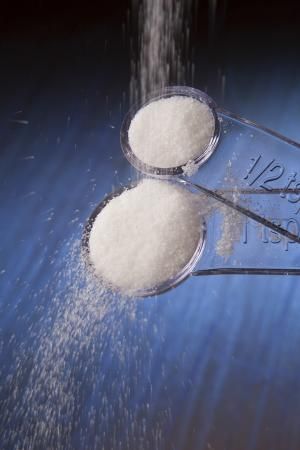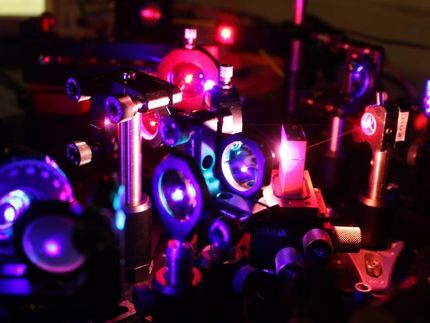New procedures to authenticate foods as a step towards standardisation
Whether it is olive oil from Apulia, Pata Negra ham from Spain or 12-year-old single-malt whisky from the Scottish Orkney Islands - all these products are characterised by their quality and their high price. These properties also make a number of other foodstuffs including fish, honey and meat attractive for adulterations. While it is true that food and ingredients must be traceable documented, the relevant papers themselves may be forged. "Given the worldwide trade with high-quality foods, we need new and unambiguous chemical and analytical methods with which we can detect both known and new adulterations in a way that is recognised by the courts", BfR Vice President Professor Dr. Reiner Wittkowski explained on the occasion of the international symposium "Standardisation of non-targeted analytical methods for food authenticity testing" which took place at the Federal Institute for Risk Assessment (BfR). At the symposium, about 100 scientists from Germany, Europe, North America, Africa, Asia and New Zealand discussed scientific challenges posed by the standardisation and validation of new methods and procedures for authenticity testing.
At the heart of the discussions are non-targeted methods for detecting food adulterations and origin. Non-targeted means that testing is not for a specific type of adulteration but rather for deviations of any type. Non-targeted procedures consist of physical and chemical analytical methods which are combined with statistical procedures and databases. By capturing the natural variation of the composition on the basis of an analysis of genuine samples of a specific food, a reference database is built up containing the chemical fingerprints of the products. Through comparison with the authentic spectra of the expected product, it is possible to identify numerous deviations in products, for example in case of deliberate adulteration.
Preconditions for the routine application of these new and non-targeted procedures are the validity of the results and their comparability when applied in different laboratories. Here important fundamentals are still missing, notably standardised and validated analytical methods including the necessary statistical interpretation and databases that are jointly accessible and usable.
On the one hand, the theme of the symposium was therefore the development of strategies for the standardisation of analytical methods and statistical models for interpreting the analytical data. A second focus was the establishment and management of jointly used databases with the goal of channelling relevant information in suitable formats, thereby enabling cooperative use and processing by different laboratories worldwide. Thirdly, the discussion centred around required measures for quality assurance both of the analytical methods and the data interpretation as well as data storage and administration in the databases.
Other news from the department science
These products might interest you

oscas by LabCognition
Spectroscopy Apps for Routine Spectrum Analysis
Increase sample throughput, avoid errors and save ressources
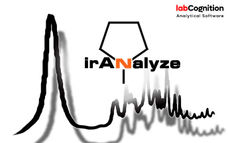
IR Analyze by LabCognition
Identify IR Spectra: Automatically, Quickly and Precisely
Interactive software for efficient identification of over 400 functional groups
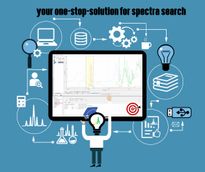
spectra databases by S.T.Japan
Work Smarter, Not Harder - The New Spectral Databases Are Now Available
Fast Identification, Seamless Compatibility - Data That Simply Works
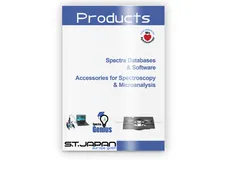
STJ-Katalog by S.T.Japan
Over 120 spectral databases for successful routine analysis
Speed up the identification of unknown substances in your laboratory
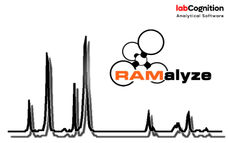
RAMalyze by LabCognition
RAMAN Spectroscopy: Reliable Analysis Results with Just a Few Mouse Clicks
Interpret RAMAN spectra quickly and easily, regardless of the data source
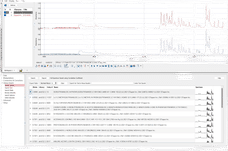
SpectraGenius by S.T.Japan
The new intuitive software for your spectra search - SpectraGenius
Easy to use, fast & reliable - SpectraGenius is the new go-to software for substance identification

Get the chemical industry in your inbox
By submitting this form you agree that LUMITOS AG will send you the newsletter(s) selected above by email. Your data will not be passed on to third parties. Your data will be stored and processed in accordance with our data protection regulations. LUMITOS may contact you by email for the purpose of advertising or market and opinion surveys. You can revoke your consent at any time without giving reasons to LUMITOS AG, Ernst-Augustin-Str. 2, 12489 Berlin, Germany or by e-mail at revoke@lumitos.com with effect for the future. In addition, each email contains a link to unsubscribe from the corresponding newsletter.
Most read news
More news from our other portals
See the theme worlds for related content
Topic World Food Analytics
Food analysis methods enable us to investigate the quality, safety and composition of our food. Whether in the traceability of food, the detection of contaminants or the verification of nutritional information - food analytics plays a crucial role in our health and nutrition. Welcome to the exciting world of food analytics!

Topic World Food Analytics
Food analysis methods enable us to investigate the quality, safety and composition of our food. Whether in the traceability of food, the detection of contaminants or the verification of nutritional information - food analytics plays a crucial role in our health and nutrition. Welcome to the exciting world of food analytics!
Last viewed contents
Pine_Bluff_Chemical_Activity
